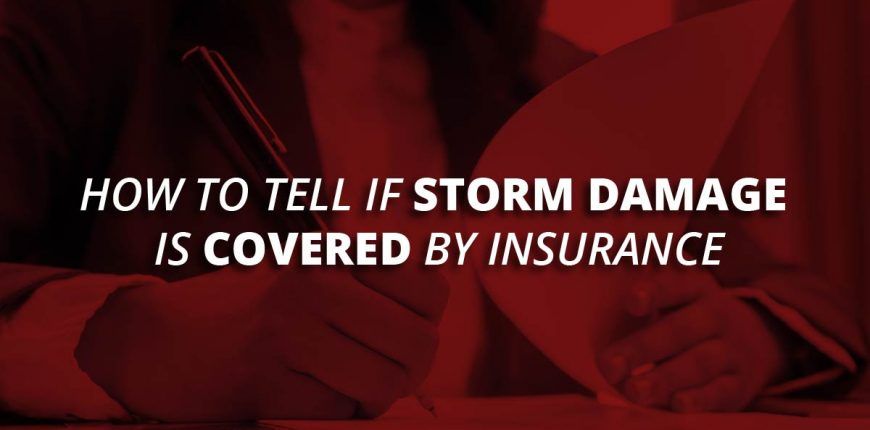
New Hampshire isn’t without its bad weather. We have been known to experience severe storms, which means your home’s roof could potentially experience damage should such a storm hit your area. If this were to happen, it could require expensive repairs or replacement depending on the extent of the damage. Fortunately, your homeowner’s insurance policy may cover these costs — but this is all dependent on what kind of coverage you have.
Standard Homeowner’s Insurance Policy Coverage
You would think if you have homeowner’s insurance it would cover any damage caused to your roof, no matter what. Unfortunately, this isn’t necessarily the case. Most homeowner’s insurance policies will cover damage caused by wind, such as if shingles are torn off your roof. Debris from the wind also could cause impact damage (for example, if a tree or tree branch falls onto your roof and damages it). Your insurance should also cover damage caused by lightning strikes (which can cause fires) as well as water and ice damage. This is particularly useful during the winter season here in New Hampshire as we are prone to experience winter storms and everything which goes along with them.
However, your policy will not cover flood damage or earthquake damage. Additionally, if you did not maintain your roof properly, the policy may not cover all of the costs associated with damage done during a storm.
Additional Coverage
You may need to purchase additional coverage if you live in an area prone to floods or earthquakes. Earthquakes can cause roof damage if they are severe enough, but you probably won’t have to worry about them here in New Hampshire. However, don’t just assume that your general homeowner’s insurance policy covers everything else. Make sure your policy covers things like wind damage, fire damage, lightning damage, ice damage, and water damage. If it doesn’t, you may need to upgrade your policy or add a rider to it.
Understand What Your Insurance Covers
Assuming your homeowner’s insurance policy will cover all of your roof damage repairs or replacement is risky. What if your roof is damaged and it turns out your policy doesn’t cover the damage? Then you may end up losing a significant amount of money paying for whatever repairs and replacements are necessary. Not to mention it’s never a good idea to leave roof damage be, no matter how minor it might be. It will grow worse over time, which means it will be even more expensive to repair or replace.
Additionally, it will leave your roof more vulnerable to storm damage. Should storm damage result and the insurance company finds out you didn’t make necessary repairs beforehand, they may not cover those damages even if those costs fall under your policy’s protections. Find out what your policy covers and either upgrade it or add the necessary riders to ensure you have the coverage you need.
Steps to Take After Storm Damage Happens
If your roof has been damaged in a storm, knowing what to do afterward can be a bit of a challenge. The following are the steps you should take.
- Make sure your family is safe – If the roof is structurally compromised, evacuate your household.
- Document the damage – Take pictures of any damage you can see from the ground. When your roofer arrives, ask for more detailed shots of the roof damage.
- Contact a roofer – A reputable roofer in your area should be able to provide a thorough professional inspection. They will evaluate the damage and provide a written report, including a detailed estimate you can provide to your insurer.
- Contact your insurer – Once you have your roofer on the way, call your insurance agent to let them know about the damage and begin the claims process.
Once you’ve contacted your insurance agent, they will send someone to your home to do their own evaluation. You’ll want the roofer to meet with the claims adjuster to discuss the damages and the cost. You should only have your roofer begin work when the claims adjuster has signed off on the work that needs to be done and the amount which will be covered. Once the work is done, you’ll pay the roofer with the check you get from your insurance company.
Dealing with your insurance company can be tricky when it comes to roof damage. It’s why you should understand what your policy covers and why you should hire a roofer with experience dealing with insurance companies. To schedule a roof inspection and obtain an estimate, contact us at J. Carnes & Son Roofing in New Hampshire today.




